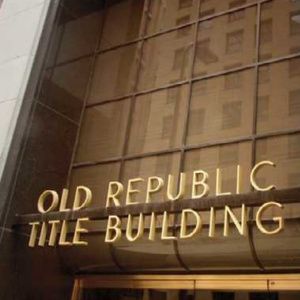David Gorka, head of Black & LoBello’s Submission and Processing department, answers some common questions clients have regarding the document submission process when dealing with a short sale and the lenders involved.
Online recommendations
- Casino Online Nuovi
- Casino Not On Gamstop
- Migliori Casino Online
- Casino Non Aams
- Migliori Casino Online
- Non Gamstop Casino
- Non Gamstop Casinos
- Games Not On Gamstop
- Best Non Gamstop Casinos
- Casino Not On Gamstop
- Betting Sites Not On Gamstop
- Non Gamstop Casinos Uk
- Casinos Not On Gamstop
- Best Non Gamstop Casinos
- Best Non Gamstop Casinos
- Non Gamstop Casino Sites UK
- Non Gamstop Casino Sites UK
- UK Casino Sites Not On Gamstop
- UK Casinos Online
- Meilleur Casino En Ligne France
- UK Online Casinos Not On Gamstop
- Slots Not On Gamstop
- Sites Not On Gamstop
- Migliori Casino Non Aams
- Best Non Gamstop Casinos
- Migliore Casino Non Aams
- Crypto Casino
- Casino Online
- Paris Foot Belgique
- Migliori Casino Non Aams
- Meilleur Casino En Ligne
- Casino Con Visa
- Nouveau Casino En Ligne
- Site De Paris Sportifs
- Migliore Casino Non Aams
- Pagamenti Crypto Scommesse
- Casino Senza Invio Documenti
- Casino Non Aams
- Casino En Ligne Fiable
- Casino Online Non AAMS
 The outlook for the New Year is grim if you own a home in Las Vegas and are not paying attention to your legal rights. Likely, you are one of the two-thirds of our valley’s property owners who are in an underwater position, most being more than 50%. Since property values are expected to drop further in 2011 along with demand and ability to purchase, it seems that local property values are in a death spiral.
The outlook for the New Year is grim if you own a home in Las Vegas and are not paying attention to your legal rights. Likely, you are one of the two-thirds of our valley’s property owners who are in an underwater position, most being more than 50%. Since property values are expected to drop further in 2011 along with demand and ability to purchase, it seems that local property values are in a death spiral.
Pundits predict that nationally, 1 in every 5 mortgages could be foreclosed on in 2011. Though the foreclosure crisis has persisted for the last three years, they say we are only one-fourth of the way through the troubled loans. Using that statistic and the, until now, popular dead beat borrower argument, 20% of our home-owning population is an irresponsible sub-prime borrower who should have never bought a home in the first place! Seriously, should the blame and the cure all be loaded on the tax-paying borrower?
What about the suspicious loans that were handed out freely, the documents the originators botched or left out all together, the securitization process that created huge pools of loans to be sold to trusting investors, the fabricated foreclosure fees and documents, and the filing of hundreds of thousands of false court documents? Is this the non-paying borrowers fault as well? Will we never call these banks to participate in the foreclosure crisis that they helped to create?
One can be optimistic only in the respect that there is beginning to arise a general understanding of how the banks function and why they are not incentivized to do anything other than position borrowers for foreclosure. As an originator bank (in charge of creating and processing the loan documents and sales), as well as the servicer bank, foreclosure serves several very important purposes: 1) it hides faulty and fraudulent documentation; 2) it avoids put-backs from investors who bought the securitized loans the banks sold; and 3) it creates default servicing revenue. In reality, the bank controls the process from start to finish and therefore, has opportunities to hide and avoid liability while earning a fee to do so.
The large number of foreclosures we continue to experience in Nevada does nothing other than breed more foreclosure and loss. Foreclosures must be avoided either through mutual consent between the lender and borrower or by enforcing legal foreclosure standards. The “dead beat borrower” argument is nothing more than an easy diversion from the real problems such as banks’ reverse-engineering loan documents, “robo-signing”, deliberately pursuing improper foreclosures, and manufacturing “junk fees” that cause or add to the pain of foreclosures. To date, the banks have enjoyed the diversion.
There is a ground-swell against these practices in small and large scale. Not only have borrowers begun to voice their disgust at bank practices, states have begun to take formalized action against the biggest offenders. Attorney General Masto filed a lawsuit against Bank of America for misleading and deceptive trade practices, making Nevada the second state to take such a stand.
Our local politicians, however, cannot be the only elected officials paying clear attention to the problem. We must all face this problem head on, and those we send to Washington must not continue to have their understanding clouded by politics and pockets. There can be no hope and no change unless we pay attention and demand that every player in this crisis be held accountable for their portion of the problem.
Servicer banks have created false and faulty documents, they have foreclosed on homes improperly and without right, they have preyed on the lethargy and ignorance of consumers, and they have been caught doing so in Nevada. By uncovering deceptive practices, faulty documents, improper procedures, and other technical and obvious arguments, you may be able to modify your loan, short sale with a release of the deficient amount, or gain other favorable results. But you must be willing to get involved. We have helped many clients who are frustrated and unable reach closure.
If you are a borrower who has failed to pay, you do have rights that can and should be protected. Sitting idly by is what the banks expect from you, what do you expect of yourself?
Tisha Black Chernine, Esq.
District Court Judge Susan Johnson on Thursday issued a temporary restraining order against enforcement of a state regulatory advisory opinion that caps the amount collection agencies may charge under “super priority” liens against homes in foreclosure. To read the full article click here.
 When one hears the word “insurance,” you automatically think you are “covered” from any and all “qualified” loss that exists under the umbrella of that coverage. Unfortunately, that does not appear to be true as all types of insurance from medical to long term disability have been the subject of movies and articles slamming the insurer’s failure to pay when the insured comes to collect on a valid claim. The same also appears to be true in the mortgage industry. The private mortgage insurance company, Old Republic, was sued last week by Bank of America for failure to pay on purportedly valid claims totaling approximately $160 million dollars. Bank of America should not be alone in their frustration as borrowers, many of whom have paid monthly for private mortgage insurance, are now liable for a greater deficiency on their short sale as a result of the mortgage insurer refusing to cover any of the difference. For example, in the event that someone sells their home with a $200,000 mortgage for $100,000 there is a deficient amount of $100,000. If we assume that the mortgage insurance company covers approximately 30% of the original note, as most cover somewhere between 20%-50%, then the deficiency balance the lender may now pursue the borrower for is only $40,000. The borrower, once liable for $100,000 loss, is only paying the $40,000 due to the mortgage insurance covering $60,000.00. However, when the mortgage insurance company fails to pay on claims, the borrower may now be facing a $100,000 suit from their lender. Considering the aforementioned, it is not only Bank of America and other lenders that are suffering from coverage denial but the borrowers who, unlike Bank of America, don’t have in-house counsel.
When one hears the word “insurance,” you automatically think you are “covered” from any and all “qualified” loss that exists under the umbrella of that coverage. Unfortunately, that does not appear to be true as all types of insurance from medical to long term disability have been the subject of movies and articles slamming the insurer’s failure to pay when the insured comes to collect on a valid claim. The same also appears to be true in the mortgage industry. The private mortgage insurance company, Old Republic, was sued last week by Bank of America for failure to pay on purportedly valid claims totaling approximately $160 million dollars. Bank of America should not be alone in their frustration as borrowers, many of whom have paid monthly for private mortgage insurance, are now liable for a greater deficiency on their short sale as a result of the mortgage insurer refusing to cover any of the difference. For example, in the event that someone sells their home with a $200,000 mortgage for $100,000 there is a deficient amount of $100,000. If we assume that the mortgage insurance company covers approximately 30% of the original note, as most cover somewhere between 20%-50%, then the deficiency balance the lender may now pursue the borrower for is only $40,000. The borrower, once liable for $100,000 loss, is only paying the $40,000 due to the mortgage insurance covering $60,000.00. However, when the mortgage insurance company fails to pay on claims, the borrower may now be facing a $100,000 suit from their lender. Considering the aforementioned, it is not only Bank of America and other lenders that are suffering from coverage denial but the borrowers who, unlike Bank of America, don’t have in-house counsel.
Carlos L. McDade, Esq.
Kelle L. Kuebler, Attorney*
*Licensed only in New York and Connecticut
 Tisha Black Chernine, Esq. speaks on the Heidi Harris Show about mortgages that could be “frozen” by the government and the process of loan modification. Click here to hear the audio clip.
Tisha Black Chernine, Esq. speaks on the Heidi Harris Show about mortgages that could be “frozen” by the government and the process of loan modification. Click here to hear the audio clip.
 Click to read Attorney General Catherine Masto’s letter to Bank of America.
Click to read Attorney General Catherine Masto’s letter to Bank of America.
 Nevada attorney general asks lenders to temporarily halt foreclosures
Nevada attorney general asks lenders to temporarily halt foreclosures
As politicians complain about potentially massive mortgage fraud around the country, a top state official is calling on all residential lenders to halt foreclosures in Nevada. To read the full story in the Las Vegas Review Journal, click here.
 Pursuant to articles in today’s Wall Street Journal, Bloomberg, and the Washington Post, Bank of America Corporation has placed a moratorium on all foreclosure proceedings across the U.S. to examine its foreclosure documentation problems. This includes all Bank of America owned properties in the state of Nevada.
Pursuant to articles in today’s Wall Street Journal, Bloomberg, and the Washington Post, Bank of America Corporation has placed a moratorium on all foreclosure proceedings across the U.S. to examine its foreclosure documentation problems. This includes all Bank of America owned properties in the state of Nevada.
Bank of America is the first financial institution to stop all foreclosure actions Nationwide, a fall-out from the recent discovery that the banks have been remiss in keeping proper documents. The banking industry has been under fire for its use of “robo-signers”, bank employees who authenticate and certify documents necessary in foreclosure actions. Robo-signers are alleged to have executed thousands of affidavits a day without actually reviewing the corresponding loan files and related documents. The failure to properly certify the documents could lead to the unwinding of many foreclosures. In response to the growing concern, many lawsuits have been filed nationwide, governmental investigations have begun and the title insurance industry has refused to insure REO properties in some states.
Bank of America, J.P. Morgan Chase, GMAC, PNC and Ally Financial Inc. postponed foreclosures in 23 states last week just as the foreclosure press was accelerated. In August, lenders took possession of a record 95,364 homes and increased foreclosure filings to 338,836 homeowners, or one in every 381 households, according to RealtyTrac.
The decision by Bank of America to extend its ban on foreclosures to all 50 states takes effect Saturday. A spokesperson for Bank of America stated this morning that the bank will not re-commence the foreclosure process until it can properly assess all of its documentation. This may be a bit of reprieve for cash-strapped homeowners but may have an untolled adverse affect on those involved in real estate sales.
If you have recently been foreclosed upon or if your house has been or will be taken as part of a bankruptcy proceeding, call our office for information. Black & LoBello will be updating our website and Twittering with important information related to the foreclosure moratorium and its affect on Nevada residents and real estate professionals.
Follow us on Twitter, Facebook, or at our website (www.blacklobellolaw.com).
Tisha Black Chernine, Esq.
 According to the latest developments, President Obama will pocket-veto a piece of legislation that critics say would make it easier for banks to process foreclosures and make it more difficult for borrowers to challenge foreclosure documentation. The bill in question, HR 3808, passed the Senate on September 27th by unanimous consent. The House passed the bill by voice vote in April. The bill would require state and federal courts to “recognize any notarization made by a notary public” licensed in any state, including electronic signatures. The motivation behind the bill was businesses’ argument that it is too easy for people to challenge notarized documents in court when notaries were licensed in different states. Ohio Secretary of State Jennifer Brunner stated on October 5th that if the bill became law it would make it harder for consumers to challenge foreclosures.
According to the latest developments, President Obama will pocket-veto a piece of legislation that critics say would make it easier for banks to process foreclosures and make it more difficult for borrowers to challenge foreclosure documentation. The bill in question, HR 3808, passed the Senate on September 27th by unanimous consent. The House passed the bill by voice vote in April. The bill would require state and federal courts to “recognize any notarization made by a notary public” licensed in any state, including electronic signatures. The motivation behind the bill was businesses’ argument that it is too easy for people to challenge notarized documents in court when notaries were licensed in different states. Ohio Secretary of State Jennifer Brunner stated on October 5th that if the bill became law it would make it harder for consumers to challenge foreclosures.
On October 6th, Ohio’s Attorney General Richard Cordray filed a lawsuit against GMAC Mortgage and its parent, Ally Financial Inc., accusing the loan servicer and its agents of filing fraudulent affidavits in an attempt to mislead courts in hundreds of Ohio foreclosures. Cordray is seeking the court to grant a preliminary and permanent injunction preventing GMAC and Ally from proceeding to foreclose in any pending Ohio case. Additionally, the lawsuit is asking for civil penalties of up to $25,000 for every violation and for consumer restitution.
Joshua D. Carlson, Esq.
 Congress recently passed Bill H.R. 3808, the Interstate Recognition of Notarizations Act of 2010 which says anything a notary signs is true, is usable (like a driver’s license) in any state, and cannot be challenged. The banking industries may use this as an answer to litigation. However, the bill is now open for public comments at the white house.
Congress recently passed Bill H.R. 3808, the Interstate Recognition of Notarizations Act of 2010 which says anything a notary signs is true, is usable (like a driver’s license) in any state, and cannot be challenged. The banking industries may use this as an answer to litigation. However, the bill is now open for public comments at the white house.
To read the bill: http://bit.ly/b6ScNC
Anyone wishing to tell the president how they feel, may do so at the following link: http://bit.ly/aGMtOn
Tisha Black Chernine, Esq.
 With foreclosure filings growing by the month, some judges are holding banks and loan servicers’ feet to the fire to prove they “own” the mortgage and that they know what information is in the filing.
With foreclosure filings growing by the month, some judges are holding banks and loan servicers’ feet to the fire to prove they “own” the mortgage and that they know what information is in the filing.
Read more: http://bit.ly/cnrhfz
 As foreclosures increase, the nation’s largest mortgage financier has added 61,929 new REO properties to its inventory in the second quarter. In an effort to step up the unloading of these properties, FANNIE has created its First Look program. See, HomePath.com .
As foreclosures increase, the nation’s largest mortgage financier has added 61,929 new REO properties to its inventory in the second quarter. In an effort to step up the unloading of these properties, FANNIE has created its First Look program. See, HomePath.com .
The program is aimed at assisting owner-occupied purchasers and public entities with purchasing the properties. Once the residence has been foreclosed upon, and assuming it has not been purchased by a third party through the foreclosure process, owner occupants, public entities and their partners can submit offers without competition from investors. The First Look period is typically 15 days.
On Thursday, new incentives were added to this program. Qualified homebuyers who will be owner-occupants can receive up to 3.5 percent of the final sales price that can be used toward closing cost assistance, including a home warranty, if available. In addition, selling agents representing owner-occupants will receive a $1,500 bonus. However, the bonus will be hard earned. Eligible offers must be submitted on or after September 23, 2010, and must close by December 31, 2010. The sale must close within 60 days of the offer being accepted.
Tisha Black Chernine, Esq.
 A survey by the Pew Research Center found that more than a third – 36 percent – of Americans believe the practice of “walking away” from their mortgage payments and their home is acceptable, at least under certain circumstances. Of the homeowners surveyed, 48 percent say the value of their home declined during the recession. It’s these underwater homeowners who are more likely than those whose home did not lose value to say it’s acceptable to renege on a mortgage (20 percent vs. 14 percent respectively).
A survey by the Pew Research Center found that more than a third – 36 percent – of Americans believe the practice of “walking away” from their mortgage payments and their home is acceptable, at least under certain circumstances. Of the homeowners surveyed, 48 percent say the value of their home declined during the recession. It’s these underwater homeowners who are more likely than those whose home did not lose value to say it’s acceptable to renege on a mortgage (20 percent vs. 14 percent respectively).
Joshua D. Carlson, Esq.
Mark your calendars. This FREE Town Hall meeting hosted by Prudential Americana features experts from various fields related to the Real Estate market to answer YOUR questions. This meeting will be on September 25, 2010 at 10:00 AM located at Green Valley Ranch, Conference Room La Sirena IV. Please submit any questions you would like to have answered at this very important meeting throughTwitter or our Facebook Discussions Tab.
Walking away from a mortgage you can afford won’t be the end of the story
By Buck Wargo (contact)
Friday, Sept. 3, 2010 | 2 a.m.
The news is bad enough that three homeowners out of four in the Las Vegas Valley owe more on their houses than they’re worth. And there’s no comfort in the prediction that the local real estate market won’t recover for years. For the full story click below.
http://www.lasvegassun.com/news/2010/sep/03/relief-now-price-later/
BATTLING THROUGH BANKRUPTCY: Chapter 7 not final chapter
Filing turns out to be ‘a relief’ for widow
Life as Renne Fortier knew it changed in January 2009.
Her husband, Mark, was diagnosed with CNS lymphoma, a brain tumor, while he was working in Hawaii. By March, he was gone and she was a 38-year-old widow with one income and two daughters, ages 16 and 11, to support. Click below for the entire story.
http://www.lvrj.com/business/chapter-7-not-final-chapter-102326189.html
Don’t miss the upcoming Town Hall meeting in which Tisha Black, Esq., will address YOUR legal questions about the current Real Estate market. This meeting will be on September 25, 2010 at 10:00 AM located at Green Valley Ranch. Please submit any questions you would like to have answered at this very important meeting through Twitter or our Facebook Discussions Tab.
 Starting September 7, 2010, the Federal Housing Administration (FHA) will offer a new refinance program to qualifying underwater homeowners. To be able to participate in the program you must be current on your home loan, your credit score must be 500 or above, and the home must constitute your primary residence. Further, all lien holders related to the property must agree to the refinance and agree to write off at least ten percent (10%) of the unpaid principal balance. As most borrowers know, lenders are loathed to write off any of the principal regardless of the possible incentives. The program does, however, offer more incentives beyond new FHA-insured mortgages. The program contemplates certain incentives for any second lien holders to provide a full or partial extinguishment of the lien. HUD says interested homeowners should contact their lenders to determine if they are eligible and whether or not their lender agrees to write down a portion of the unpaid principal. Keep in mind that the present loan must be a non-FHA loan.
Starting September 7, 2010, the Federal Housing Administration (FHA) will offer a new refinance program to qualifying underwater homeowners. To be able to participate in the program you must be current on your home loan, your credit score must be 500 or above, and the home must constitute your primary residence. Further, all lien holders related to the property must agree to the refinance and agree to write off at least ten percent (10%) of the unpaid principal balance. As most borrowers know, lenders are loathed to write off any of the principal regardless of the possible incentives. The program does, however, offer more incentives beyond new FHA-insured mortgages. The program contemplates certain incentives for any second lien holders to provide a full or partial extinguishment of the lien. HUD says interested homeowners should contact their lenders to determine if they are eligible and whether or not their lender agrees to write down a portion of the unpaid principal. Keep in mind that the present loan must be a non-FHA loan.
Tisha Black Chernine, Esq.
 Rarely does a loan modification include a principal reduction. The typical loan modification only deals with the first mortgage and will only reduce the monthly payment, not the total amount due and owing. For most Las Vegans it does not make sense to keep paying on an asset that is completely upside-down.
Rarely does a loan modification include a principal reduction. The typical loan modification only deals with the first mortgage and will only reduce the monthly payment, not the total amount due and owing. For most Las Vegans it does not make sense to keep paying on an asset that is completely upside-down.
Therefore, many people turn to Chapter 13 bankruptcy to modify their loans AND reduce the principal balance. Chapter 13 bankruptcy can eliminate your second mortgage completely while bringing any missed payments on your first mortgage current over a three or five year period. In bankruptcy, removing the second lien on a property is called “lien stripping.” You can lien strip only if the value of your house is LESS than what you owe on your first mortgage.
For example, if the value of your home is $175,000 and you have a first mortgage of $200,000 and a second mortgage of $150,000, in a Chapter 13 bankruptcy you completely eliminate the second mortgage and only pay on the first mortgage. Thus, in Chapter 13 bankruptcy you were able to reduce the principal amount of your home by $150,000.
Chapter 13 bankruptcy has many other benefits and, in some cases, can save your home. To learn more, please visit Black & LoBello’s Bankruptcy Website for more details.
Randy M. Creighton, Esq.
Prudential Americana hosts Tisha Black Chernine as a legal expert on the housing market in Las Vegas. Click here to watch the video.


